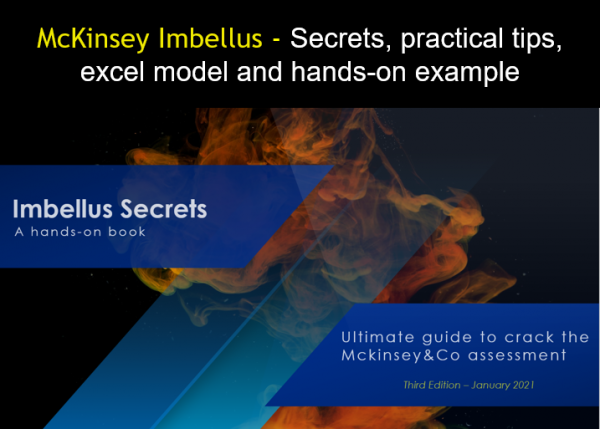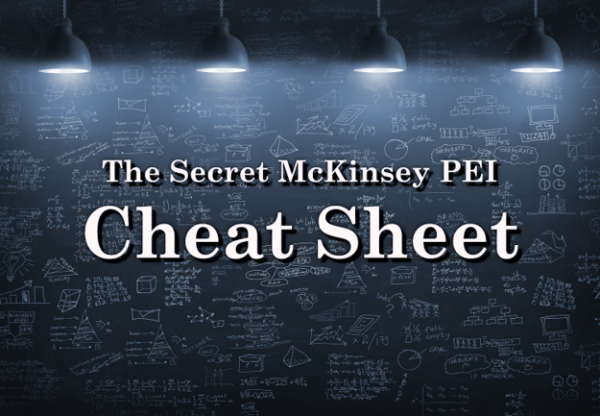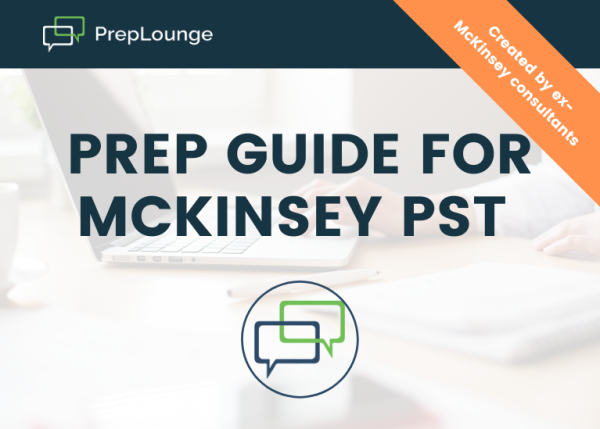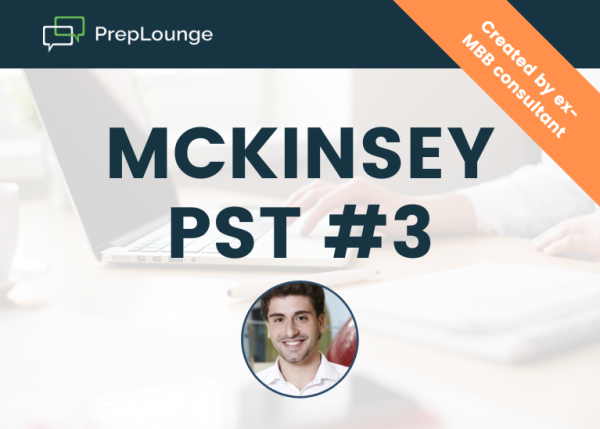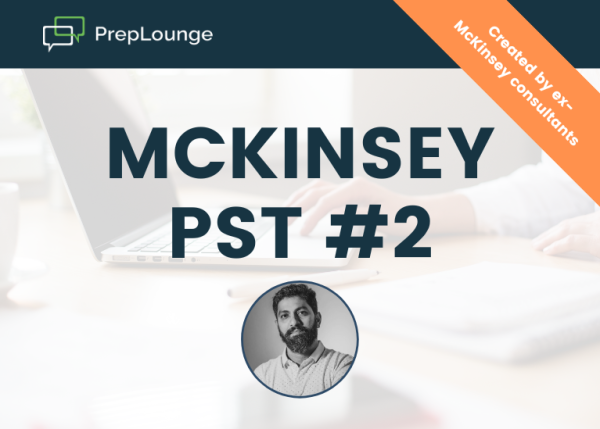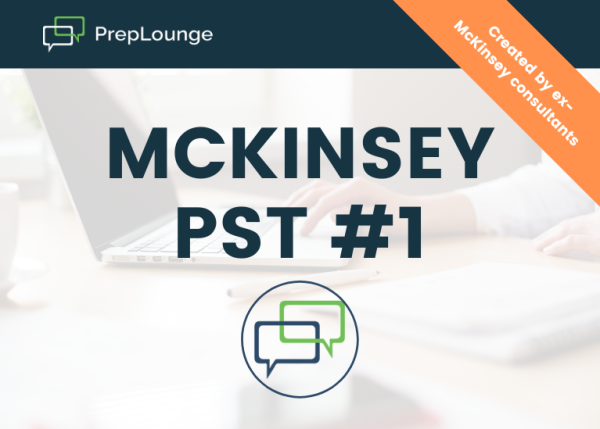Is there a corelation between the industry in which the partner has worked in most of his career and the case he might give ? How should one prepare after the profiles of interviewers are revealed ?
Get Active in Our Amazing Community of Over 451,000 Peers!
Partner Round McKinsey.
Overview of answers
Hi,
In short:
- Earlier rounds - low correlation, cases mainly from the company casebook
- Later rounds - high correlation since partners have their own cases. Although be careful since partners may have expertise in multiple industries
However, I strongly recommend learning more about different industries. It will help you to:
- Build better structures
- Demonstrate business judgment
- Answer the questions on creativity
Instead of thinking about the partners, Focus on the most common industries in the following priority (sorted by probability of getting a case): 1-retail and CPG; 2-airlines; 3-Telecom; 4-banking; 5-natural resources; 6-tech and work on building analytical thinking in each of these industries.
There are several sources of info to develop analytical thinking:
1) Cases - you simply solve 50-70 cases and get a broad knowledge of different industries, common pitfalls and questions. The key here - find good partners who already had case interviews with MBB companies
2) Company reports, equity reports, IB roadshow docs - usually have a good overview of company and industries. The most useful sources to understand what's going on with the companies
3) HBS cases - quite useful, but not sure if lot's of them available publically. Probably worth buying
4) Books - one good book about airlines with numbers and industry analysis can give you all needed industry knowledge
5) News, Industry blogs
For each industry, you should understand:
- Revenue streams
- Cost structure
- Margins
- Key performance indicators
- Key revenue drivers
- Industry trends
I strongly recommend practice drawing structures for each industry - profitability, value chain, etc
Also some comments about particular industries:
1) Retail - make sure you understand key retail metrics (P&L lines, same store sales, revenue per square meter and per person, etc) and how distribution works as well as its metrics (share on shelf, etc)
2) Airlines - read about profitability issues, different routing models, cost structure, industry metric s like load factor and make sure you know all possible additional revenue streams
3) Telecom - I would read industry reports and try to understanf how telecom is transforming with internet penetration and tech innovations
4) Banking - you should know the key products in corporate and retail banking and how they earn money (Interest, commision, transactional)
5) PE / M&A - go through available case examples and read about different PE strategies
Then I will switch to getting the functional knowledge and key concepts in:
- Marketing (Brand and trade marketing tools, etc)
- Supply chain (Ops metrics like cycle time and throughput time, distribution and delivery specifics, etc)
- Finance (Basic Accounting and Valuation)
Good Luck
Best!
There is a correlation, but not a perfect one due to the fact that partners' favorite interview case might be from an experience early on in his career in an industry she didn't specialize in. If you have time you can get familiar with the industries by reading a couple of investor day presentations from top players in each one of them or reading annual reports, but I would focus more on casing in general.
Finally, if you decide to spend time on reading about industries, don't spend too much time and try to get deep to sound smart, stop at understanding the basics. This because the partners are the real experts in these industries and if you show too much familiarity it can backfire because they might expect more from you because they might assume you work in them, did courses on them or had projects on them.
See other answers to this question here: https://www.preplounge.com/en/consulting-forum/corelation-of-interviewers-background-with-the-industry-of-the-phone-round-case-1538#a3383
Hope it helps,
Andrea
Hi Anonymous,
you will find high correlation between the partners’ sectors and the type of cases in final rounds. At this stage you may not even get a complete “formal” case but just be asked about your thoughts on a specific element of the partner’s industry or on one of the most recent cases of the partner.
As mentioned in the other replies though it could be risky to try to guess the type of sector, as high correlation doesn’t mean you could not get other sectors as well. A better strategy could be the following:
- Obtain a general understanding of the main sectors of the partners (as mentioned by Andrea you don’t need to know all the details)
- Practice on asking the right questions at the beginning to properly understand the business model of the client – this is a lot more important than having specific information on the sector outside basic knowledge.
Finally, the best usage you could get of the partner profile is to prepare adequate questions at the end on their specific path. Everyone likes to get personal questions on a successful career growth and this will show you have done due diligence on the person before the interviewer, an important skill to show in a consulting interview.
Best,
Francesco
Andrea and Vlad just gave solid answers already. Let me give it a slightly different spin, which hopefully will also help you visualize this:
tl;dr: You cannot possible prepare for every single type of case. I highly recommend investing your prep time in understanding the basics of a case and develop a logical, methodical, repeatable skill set.
Why am I saying this? 3 reasons:
1st reason: I am currently writing some case content for PrepLounge; ultimately, I will probably have to write 3 cases. From my profile, most would assume my main real world expertise is in business development and operationalization - yet the first case I am focusing on is about software development, outsourcing and health insurance. Will you need a background in any of these 3 areas to get to the answers? Absolutely not. What you will need insteadd will be (1) solid understanding of the case mechanics, (2) solid head to think of new questions and be flexible, (3) obviously a fair amount of logic and mental math.
All too often, I see candidates spending a lot of energy trying to anticipate what the case will be about, or focus on a minute point in the case - yet they still haven't really understood why consultancies give cases, what qualities they are expected to display, or how to structure their approach. You don't run before you walk, why try to specialize in a very unique case situation before you can comfortably crack a standard one?
In addition, your actual interviewers will sometimes change at the last minute. If you have only prepared CPG cases yet the interviewer who comes in an Energy expert, what will you do?
2nd reason: Most applicable to MBB: Part of what makes these companies special is their ability to cater a solution to the specific client's needs. Some guys will have a cookie-cuter solution which they'll then sell to every one. Not so at MBB (and at a few other tier2 companies). Same with a case: a single work in the question will completely change what the approach and the answer will be.
3rd reason: A friend of mine was studying to become a doctor (MD). He somehow always to manage to figure out what the exams would be on, and eventually got his degree. His knowledge was very inconsistent and unbalanced however, with the result that he was completely unfit to be a physician. Don't be that guy.
Hope this helps. Good luck.




